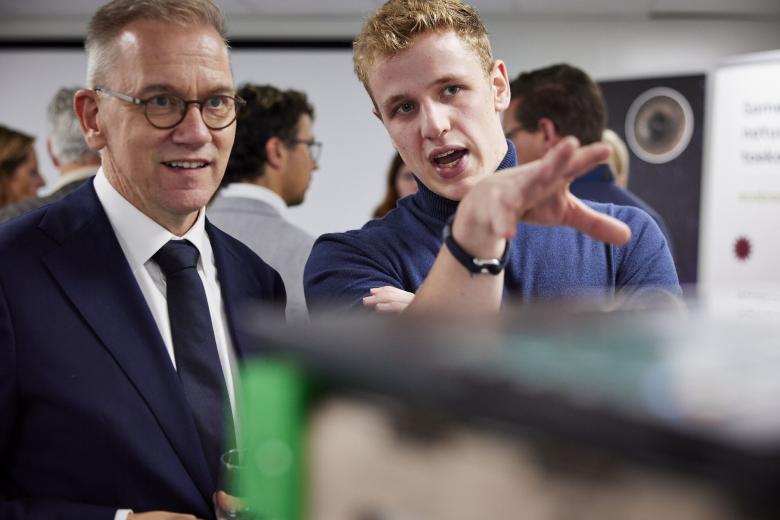Paracetamol safe for premature babies
Premature babies undergo more than ten painful treatments per day at the average NICU (neonatal intensive care unit). For the first time, it was demonstrated that paracetamol is a safe form of pain relief for infants born before 32 weeks. This was the result of a study conducted at Máxima Medical Centre by Christ-jan van Ganzewinkel, a nurse specialist at the MMCs NICU. Van Ganzewinkel will receive his PhD from Maastricht University on 6 October 2016.
Van Ganzewinkel found that intravenous paracetamol is tolerated and processed well by premature babies, without any side effects. This finding reveals that intravenous paracetamol is a safe treatment method for extremely premature NICU babies as well.
Limited pain management options
Previous research has found that extremely premature babies do indeed experience pain. A recent study revealed that pain measurement and pain management does not occur as often as it should at NICUs in countries across Europe, including the Netherlands.
Pain management options are limited for premature babies because very little is known about the effects of pain medication on this patient group. An obvious method of pain management is paracetamol. This can be tricky, particularly with extremely premature babies, as they do not tolerate much if any food. Van Ganzewinkel's study shows that the use of multiple intravenous doses of paracetamol can lead to predictable blood levels in this vulnerable patient group. No side effects were discovered. The research results can be used for a follow-up study to find the safest and most effective dose. Van Ganzewinkel's research therefore contributes to enhancing the quality of care for these vulnerable patients.
Also read
-
UM seeks new balance between the university and student associations
Maastricht University is suspending its relationship with student associations Tragos and Circumflex until further notice. Discussions with the boards of these associations have revealed that agreements outlined in the Code of Conduct have not been upheld. Experience from recent years shows that...

-
Opportunities and concerns take centre stage during Minister Bruins' working visit to Maastricht
On Friday afternoon, 18 October, Minister Eppo Bruins (Education, Culture, and Science) paid a working visit to Maastricht. There, he was briefed by Limburg's educational institutions on current educational topics from the Education Manifesto. The minister also engaged in conversations with teachers...

-
Education minister's parliamentary letter: threat to education and region draws nearer
On 15 October, education minister Bruins informed the Netherlands House of Representatives of his plans to reduce the number of international students in the Netherlands through the Internationalisation in Balance Act (‘Wet Internationalisering in Balans’). Maastricht University has serious concerns...
